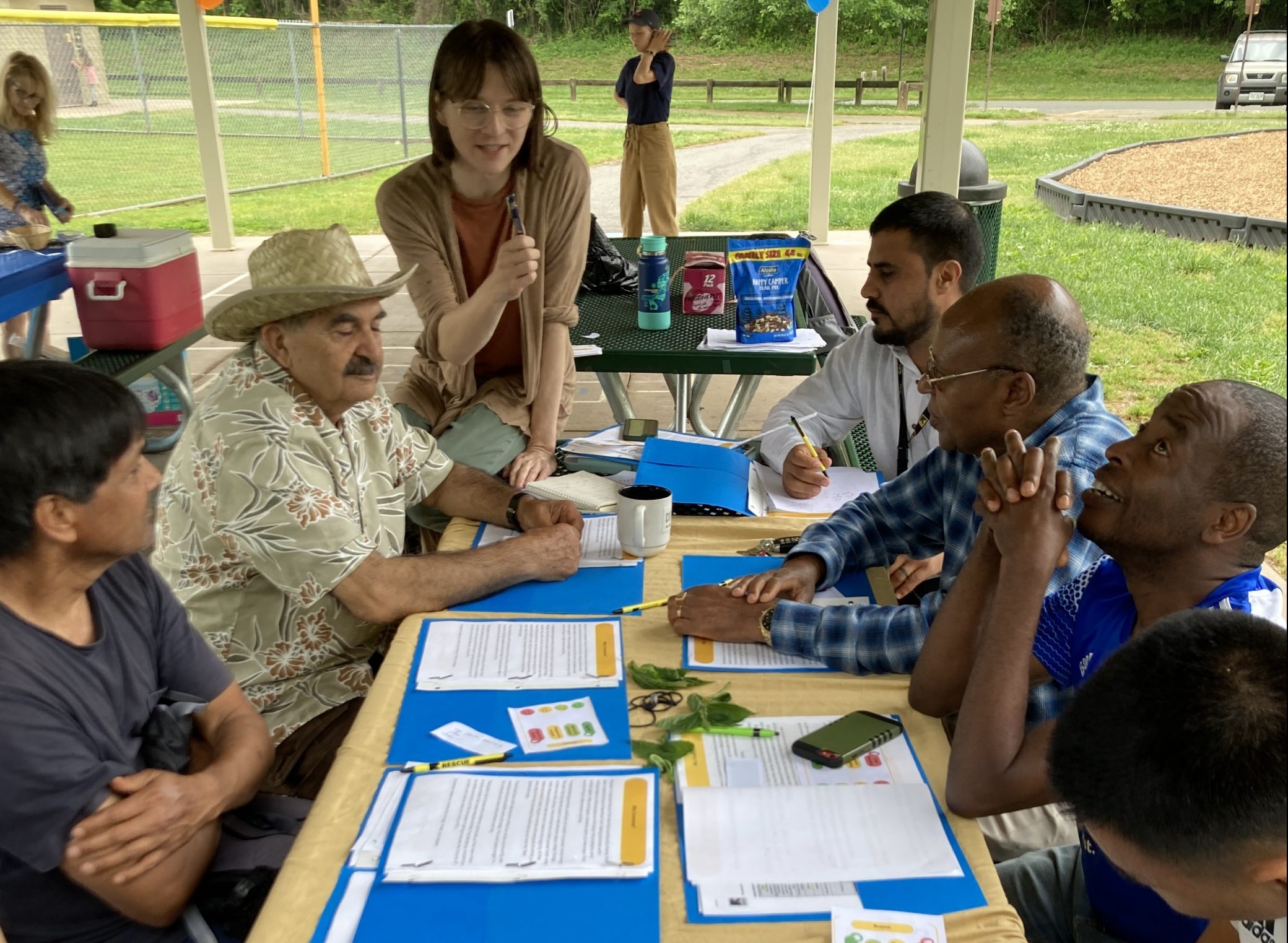The Department of Parks and Recreation will meet with Charlottesville City Council in August for the final approval of the purchase of the Moore’s Creek Farm property, the current location of International Rescue Committee’s New Roots Farm.
The New Roots program’s mission is to support refugee food security, and aid refugees’ transition to the community through gardening education, local food access, and small-scale farming. Its aim is to preserve and develop urban agricultural land that supports immigrants and refugee communities.
Cecilia Lapp Stoltzfus, the manager of food and agriculture programs at New Roots, works closely with farming clients and fellow colleagues to steward land for urban agriculture in the area. Charlottesville’s program manages five community garden sites and serves upwards of 70 participants alongside their families each year.
“It’s been a long road of finding available land in the city and county that is both suitable for agriculture and accessible—either within walking distance, public transit, or otherwise—to refugees who live in the community,” says Lapp Stoltzfus.
Charlottesville’s New Roots is one of a dozen similar IRC programs across the country that share the same mission.
Located on Old Lynchburg Road, New Roots Farm has been leased by the IRC for nine years, and it continues to be its largest site, spanning eight acres. Other locations are the Homewood Demonstration & Training Farm, the 5th Street Community Garden, 4th Street Garden, and The Haven Garden near downtown.
According to Lapp Stoltzfus, many Congolese, Bhutanese, and Afghan refugee families have found New Roots Farm to be a meaningful place.
For many immigrant farmers, growing traditional crops is a powerful driver for participating in agriculture. Ranging from vegetables to specialty greens, some of the crops grown are eggplant, maize or field corn, amaranth, bean leaves, pumpkin leaves, and spider flower, which are difficult to come by otherwise.
Since emigrating from the Democratic Republic of the Congo in January 2018, David Bahambazi has worked as a New Roots farmer and a member of the steering committee. Before joining the program, he could not find all the foods commonly used in Africa, primarily vegetables.
“New Roots is a place where I can enjoy being outside with nature and it helps me overcome my stress,” says Bahambazi. “Since farming here, I have been saving a minimum of $500 on veggies every year,”
New Roots continues to build infrastructure, and is working on improving growing methods for specialty crops not typically grown in Virginia’s climate. Lapp Stoltzfus says the organization is trying to build the sustainability and stability of this activity as a cultural and food resource for the community.
Dustin Hicks, an AmeriCorps service member serving with the IRC and New Roots, is working with the steering committee to develop New Roots Farm. After college, Hicks joined AmeriCorps and New Roots in search of opportunities to match their interests and studies in sustainable development perspectives and critical development theory. “It was my dream to be able to compensate farmers for their time working on the steering committee, and I was so happy that the idea was approved,” Hicks says.
Previously, New Roots Farm was heavily impacted by flooding. The steering committee is currently considering a potential new site that is larger and would be much less affected by flooding. “We had flooding that affected almost three-quarters of the land and the gardens were demolished,” says Bahambazi. “Less than a quarter of the [potential] new farmland would be affected by flooding.”
If approved, the city’s purchase of the Moore’s Creek Farm property could be finalized by September.
Editor’s note: A previous version of this article incorrectly stated that IRC New Roots was purchasing new land. The City of Charlottesville is purchasing land that New Roots currently leases. C-VILLE regrets the error.






